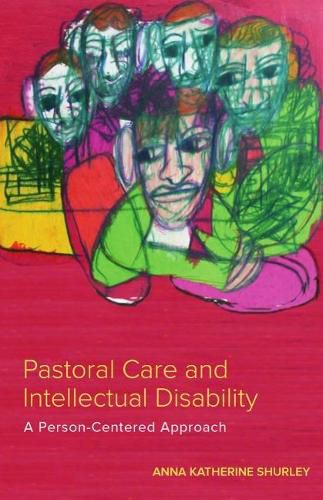Readings Newsletter
Become a Readings Member to make your shopping experience even easier.
Sign in or sign up for free!
You’re not far away from qualifying for FREE standard shipping within Australia
You’ve qualified for FREE standard shipping within Australia
The cart is loading…






Every Christian is called to and gifted for ministry. The church canaand mustaengage all of its members if it is to flourish fully. Far too often, persons with intellectual disabilities are excluded. While members with disability areoften recipients of the church’s ministry, they are seldom given the opportunity to reciprocate: persons with disability are not always fully empowered to minister. In Pastoral Care and Intellectual Disability , Anna Katherine Shurley asserts the church’s need for mutuality in pastoral care. While the shape of each person’s vocation is unique, all members of the body of Christ are created for ministry with one another as partners in spiritual care. In a quest for pastoral care that is fundamentally collaborative and fully inclusive, Shurley turns to the psychology of D. W. Winnicott and to Karl Barth’s theology of Christian vocation. From this combination, she crafts person-centered pastoral care for the body of Christ and all its members, with or without intellectual disabilities. Person-centered pastoral care recognizes that people with intellectual disabilities can and must participate as partners in the church. Faith communities, Shurley suggests, can foster collaborative ministry by nurturing pastoral friendships among its membership. These sacred friendships are spaces in which people share their lives with one another as a truly collaborative practice of care. Through these pastoral friendships mediated by the presence of the Holy Spirit, all of God’s children can livetheir particular vocations. By engaging person-centered practices of pastoral care, the church strengthens its witness and truly becomes a place of belonging for all people.
$9.00 standard shipping within Australia
FREE standard shipping within Australia for orders over $100.00
Express & International shipping calculated at checkout
Every Christian is called to and gifted for ministry. The church canaand mustaengage all of its members if it is to flourish fully. Far too often, persons with intellectual disabilities are excluded. While members with disability areoften recipients of the church’s ministry, they are seldom given the opportunity to reciprocate: persons with disability are not always fully empowered to minister. In Pastoral Care and Intellectual Disability , Anna Katherine Shurley asserts the church’s need for mutuality in pastoral care. While the shape of each person’s vocation is unique, all members of the body of Christ are created for ministry with one another as partners in spiritual care. In a quest for pastoral care that is fundamentally collaborative and fully inclusive, Shurley turns to the psychology of D. W. Winnicott and to Karl Barth’s theology of Christian vocation. From this combination, she crafts person-centered pastoral care for the body of Christ and all its members, with or without intellectual disabilities. Person-centered pastoral care recognizes that people with intellectual disabilities can and must participate as partners in the church. Faith communities, Shurley suggests, can foster collaborative ministry by nurturing pastoral friendships among its membership. These sacred friendships are spaces in which people share their lives with one another as a truly collaborative practice of care. Through these pastoral friendships mediated by the presence of the Holy Spirit, all of God’s children can livetheir particular vocations. By engaging person-centered practices of pastoral care, the church strengthens its witness and truly becomes a place of belonging for all people.